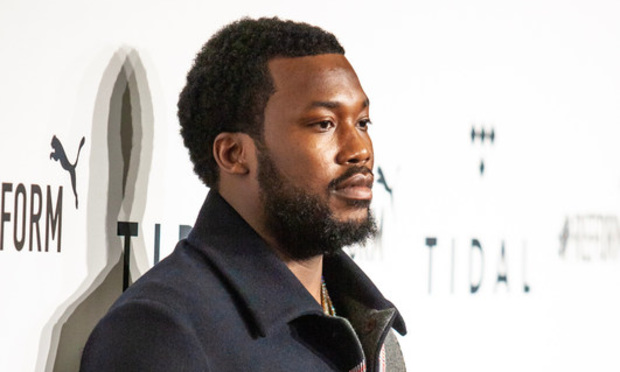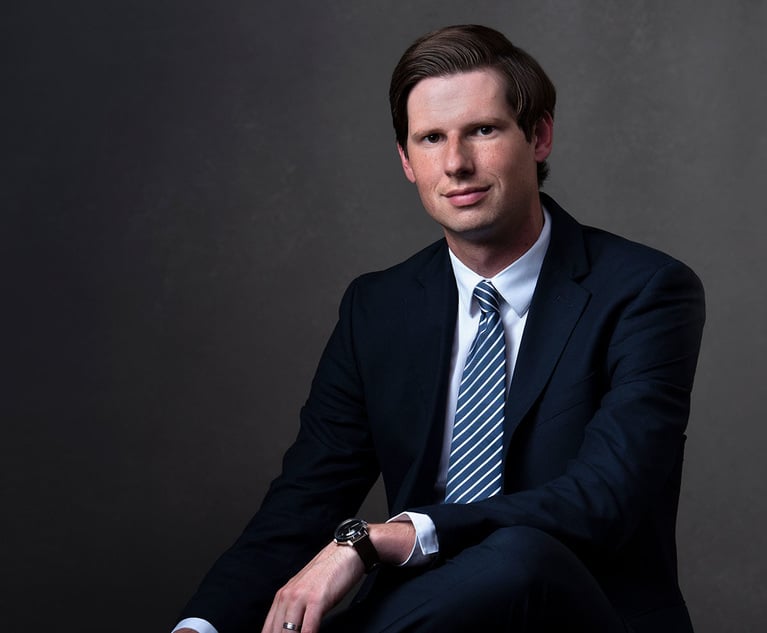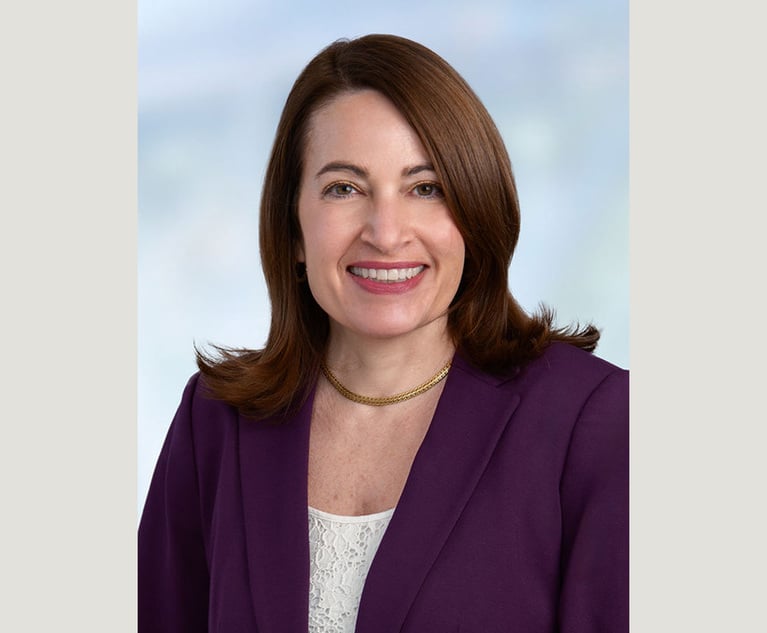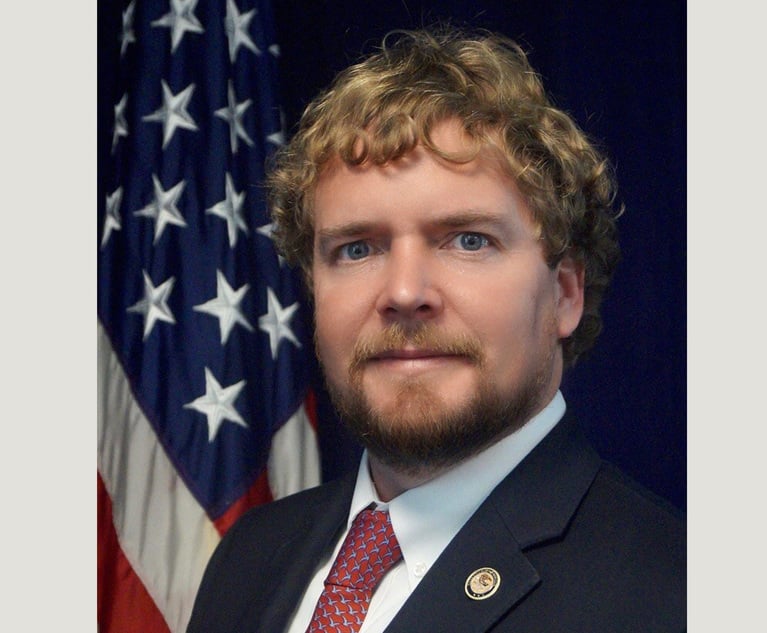Meek Mill Asks Appeals Court to Remove Judge From Case and Order New Trial
Attorneys for Meek Mill argued before a three-judge Superior Court panel in what marked the rapper's latest efforts to overturn a more than 10-year-old conviction on gun and drug charges.
July 16, 2019 at 06:25 PM
4 minute read
 Meek Mill. Photo: Arturo Holmes/Shutterstock.com
Meek Mill. Photo: Arturo Holmes/Shutterstock.com
Rapper Meek Mill and the Philadelphia District Attorney's Office both want Philadelphia Judge Genece Brinkley removed from the hip-hop star's high-profile case, and it appears that at least one Pennsylvania Superior Court judge is ready to rule that way.
On Tuesday, attorneys for the embattled hip-hop star argued before a three-judge Superior Court panel in what marked the rapper's latest efforts to overturn a more than 10-year-old conviction on gun and drug charges.
Prosecutors and counsel for Mill, whose real name is Robert Rihmeek Williams, both told the Superior Court panel that the rapper was entitled to a new trial, and that Brinkley, who oversaw Williams' initial case and sentenced him to prison in 2017 for a parole violation, should be barred from handling any future proceedings in the case.
On the removal issue, Superior Court President Judge Jack Panella told the packed courthouse in the Old City neighborhood of Philadelphia that rulings from the Pennsylvania Supreme Court seemed to direct that outcome.
“We are almost under instructions from the Supreme Court to do that,” Panella said. Flanking Panella on the panel were Judge Judith Ference Olson and Senior Judge Kate Ford Elliott.
Williams' appeal sparked a national outcry in late 2017 after Brinkley handed the rapper a two-to-four year prison sentence for a probation violation, despite neither prosecutors nor Williams' probation officer requesting prison time. The case has since became a flashpoint in the national debate about criminal justice reform.
Following Brinkley's decision, Williams' counsel and the judge clashed on numerous occasions, culminating in a contentious courtroom hearing that took place last year over arguments that Williams was entitled to a new trial. Brinkley eventually denied those efforts.
Reed Smith attorney Kim Watterson, who argued on behalf of Williams before the Superior Court panel, cited that hearing as evidence of why Brinkley needed to be removed from the case, saying the judge acted as a “prosecutor,” and inappropriately cross-examined witnesses during the courtroom proceedings.
Brinkley's removal from the case, Watterson told the panel, was needed to “preserve the integrity and dignity of the judicial process.”
Williams has repeatedly called for Brinkley to step down from his case, and those efforts appeared to gain some traction last year with the Supreme Court.
In March 2018, while Williams remained in prison, the rapper's legal team filed a King's Bench petition with the justices, asking the court to exercise its plenary jurisdiction to remove Brinkley from the case and order his release on bail. The justices agreed to release Williams on bail, but said they would not decide whether Brinkley should stay on the case.
Williams' legal team in 2018 asked the judge who supervises Philadelphia's criminal courts to remove Brinkley, but that judge said only a higher court would have the power to remove another Common Pleas Court judge. Williams' team quickly made its second bid to the Supreme Court, saying Brinkley's recent activity, including having a private attorney make public statements about the case and filing lawsuits claiming she suffered potentially disabling injuries, should disqualify her from handling his appeal.
The court split 3-3 on that appeal, with three justices saying Brinkley's “continued involvement has created an appearance of impropriety that tends to undermine public confidence in the judiciary.”
Although Watterson and attorney Paul George, who argued on behalf of the Philadelphia District Attorney's Office, said the judge's conduct warranted her removal, Panella said Tuesday the appeals court may not need to wade into the conduct, but could instead base its determination on other procedural rules.
Regarding a new trial, Williams' team has argued that newly uncovered evidence casts serious doubts about the credibility of former Philadelphia Police Officer Reginald Graham, who was the only witness to testify against Williams at trial. Those arguments pushing for a new trial were not disputed by prosecutors Tuesday.
After Olson asked about how prosecutors have handled other cases involving Graham, George told the panel that, although each case is weighed individually, the office has called for new trials in numerous cases where Graham was a key witness in the prosecution.
“If you're found to be someone who didn't tell the truth, as the commonwealth, we can't call that kind of a witness,” George said.
A representative from Williams' team said he expects a ruling from the panel in three to six weeks.
This content has been archived. It is available through our partners, LexisNexis® and Bloomberg Law.
To view this content, please continue to their sites.
Not a Lexis Subscriber?
Subscribe Now
Not a Bloomberg Law Subscriber?
Subscribe Now
NOT FOR REPRINT
© 2025 ALM Global, LLC, All Rights Reserved. Request academic re-use from www.copyright.com. All other uses, submit a request to [email protected]. For more information visit Asset & Logo Licensing.
You Might Like
View All

Superior Court Directs Western Pa. Judge to Recuse From Case Over Business Ties to Defendant
3 minute read

Trending Stories
- 1K&L Gates Files String of Suits Against Electronics Manufacturer's Competitors, Brightness Misrepresentations
- 2'Better of the Split': District Judge Weighs Circuit Divide in Considering Who Pays Decades-Old Medical Bill
- 3Which Georgia Courts Are Closed Today?—Here's a List
- 4After DEI Rollbacks, Employment Lawyers See Potential For Targeting Corporate Commitment to Equality
- 5People in the News—Jan. 23, 2025—Marshall Dennehey, Duane Morris, Hangley Aronchick
Who Got The Work
J. Brugh Lower of Gibbons has entered an appearance for industrial equipment supplier Devco Corporation in a pending trademark infringement lawsuit. The suit, accusing the defendant of selling knock-off Graco products, was filed Dec. 18 in New Jersey District Court by Rivkin Radler on behalf of Graco Inc. and Graco Minnesota. The case, assigned to U.S. District Judge Zahid N. Quraishi, is 3:24-cv-11294, Graco Inc. et al v. Devco Corporation.
Who Got The Work
Rebecca Maller-Stein and Kent A. Yalowitz of Arnold & Porter Kaye Scholer have entered their appearances for Hanaco Venture Capital and its executives, Lior Prosor and David Frankel, in a pending securities lawsuit. The action, filed on Dec. 24 in New York Southern District Court by Zell, Aron & Co. on behalf of Goldeneye Advisors, accuses the defendants of negligently and fraudulently managing the plaintiff's $1 million investment. The case, assigned to U.S. District Judge Vernon S. Broderick, is 1:24-cv-09918, Goldeneye Advisors, LLC v. Hanaco Venture Capital, Ltd. et al.
Who Got The Work
Attorneys from A&O Shearman has stepped in as defense counsel for Toronto-Dominion Bank and other defendants in a pending securities class action. The suit, filed Dec. 11 in New York Southern District Court by Bleichmar Fonti & Auld, accuses the defendants of concealing the bank's 'pervasive' deficiencies in regards to its compliance with the Bank Secrecy Act and the quality of its anti-money laundering controls. The case, assigned to U.S. District Judge Arun Subramanian, is 1:24-cv-09445, Gonzalez v. The Toronto-Dominion Bank et al.
Who Got The Work
Crown Castle International, a Pennsylvania company providing shared communications infrastructure, has turned to Luke D. Wolf of Gordon Rees Scully Mansukhani to fend off a pending breach-of-contract lawsuit. The court action, filed Nov. 25 in Michigan Eastern District Court by Hooper Hathaway PC on behalf of The Town Residences LLC, accuses Crown Castle of failing to transfer approximately $30,000 in utility payments from T-Mobile in breach of a roof-top lease and assignment agreement. The case, assigned to U.S. District Judge Susan K. Declercq, is 2:24-cv-13131, The Town Residences LLC v. T-Mobile US, Inc. et al.
Who Got The Work
Wilfred P. Coronato and Daniel M. Schwartz of McCarter & English have stepped in as defense counsel to Electrolux Home Products Inc. in a pending product liability lawsuit. The court action, filed Nov. 26 in New York Eastern District Court by Poulos Lopiccolo PC and Nagel Rice LLP on behalf of David Stern, alleges that the defendant's refrigerators’ drawers and shelving repeatedly break and fall apart within months after purchase. The case, assigned to U.S. District Judge Joan M. Azrack, is 2:24-cv-08204, Stern v. Electrolux Home Products, Inc.





